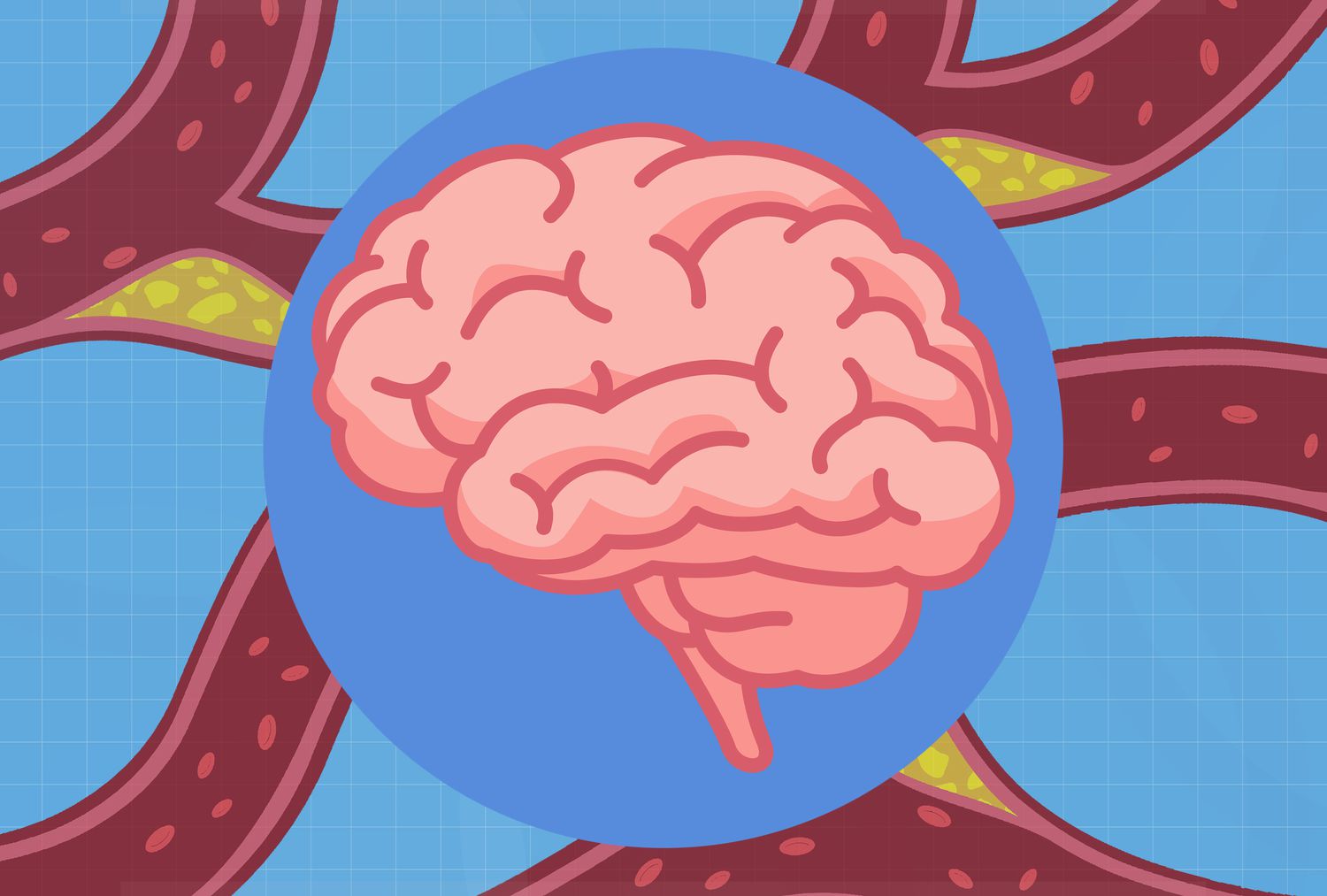
Dementia Risk May Be Lowered by 26% by Improving Cholesterol, New Study Says
Key Takeaways
- A new study suggests a link between healthy cholesterol levels and reduced dementia risk.
- The study focuses particularly on LDL-C (called “bad”) cholesterol.
- While cholesterol is necessary and our bodies make it, too much of the bad kind is harmful.
The science around cholesterol can definitely seem opaque—if you’ve ever been confused about which foods increase cholesterol, what constitutes a healthy cholesterol level and how cholesterol levels can be reduced, you know what we mean.
The good news is that researchers have actually figured out a lot about cholesterol levels. There are different kinds of cholesterol, like LDL (or bad) cholesterol and HDL (or good) cholesterol. Plus, we now know that keeping your cholesterol balanced has more to do with saturated fat than dietary cholesterol. All this ongoing research into cholesterol has also yielded interesting findings about the connection between cholesterol and cognitive decline.
Researchers from South Korea recently examined the association between low-density lipoprotein cholesterol (LDL-C, or bad cholesterol) levels and the risk of dementia. They also wanted to assess the influence of statin therapy on dementia risk. (Statins are commonly prescribed drugs to help lower cholesterol levels.) They published their findings in the Journal of Neurology, Neurosurgery & Psychiatry in April 2025. Let’s break down what they found and see how they apply to real life.
How Was This Study Conducted?
Researchers wanted to see if there was a connection between LDL-C levels and all-cause dementia (any type of dementia, regardless of its cause) as well as Alzheimer’s disease and related dementias (ADRD; dementias that share similar symptoms of Alzheimer’s but may be due to different causes). They drew data from 11 medical centers across South Korea that were a part of a global partnership that makes medical information available for research.
The information was gathered from outpatients who were at least 18 years old between November 1986 and December 2020. Each participant’s baseline was the day their LDL-C level was measured.
Participants were divided into two cohorts: 192,213 individuals with LDL-C levels less than 70 mg/dL and 379,006 individuals with LDL-C levels greater than 130 mg/dL.
Researchers then matched participants 1:1 across the cohorts so that there were 108,980 matched pairs for a total of 217,960 participants. During statistical analysis, the researchers also adjusted for potential confounders, including information like age, sex, index year (baseline), comorbidities (like chronic diseases), drugs that had been prescribed within the last year and more.
The researchers split their work into four analyses, including LDL-C level association with dementia risk in the overall population; LDL-C level association with dementia risk in statin user population; statin use association with dementia risk across LDL-C level categories; and association of statin type with dementia risk
What Did This Study Find?
This study revealed several findings.
- LDL-C levels below 70 mg/dL were associated with a 26% reduction in the risk of all-cause dementia and a 28% reduction in the risk of ADRD compared to levels above 130 mg/dL.
- For LDL-C levels below 55 mg/dL there was an 18% risk reduction for both all-cause dementia and ADRD.
- In those with LDL-C levels less than 70 mg/dL, statin use was associated with a 13% reduction in all-cause dementia risk and a 12% decrease in ADRD risk compared with non-users.
These researchers conclude that the findings support the necessity of targeted lipid management as a preventive strategy against dementia, and emphasize the need for individualized treatment approaches.
There are a few limitations to this study. First, there may have been some confounding factors that were missed that could influence either or both LDL-C levels and dementia. This study also used only the baseline LDL-C levels instead of tracking levels over time, which would have provided more accuracy.
How Does This Apply to Real Life?
While there is still much to learn about cholesterol and dementia, these researchers hypothesize that the LDL-C-dementia connection may be influenced by several pathways. These include brain cholesterol balance, inflammation and oxidative stress. We also know that high LDL-C levels can contribute to atherosclerosis—a build-up of plaque in the blood vessels—which is a risk factor for dementia.
It’s important to understand that our bodies manufacture cholesterol and that it is necessary for several mechanisms in our bodies to run optimally, including proper development and function of our cell walls, sex hormones and bile production in the liver.
If you don’t know your cholesterol numbers, request a blood test from your primary care provider to get them. According to the Centers for Disease Control and Prevention, optimal cholesterol levels are:
- Total cholesterol: roughly 150 mg/dL
- LDL cholesterol: about 100 mg/dL
- HDL cholesterol: at least 40 mg/dL for men and 50 mg/dL for women
- Triglycerides: less than 150 mg/dL
Whether your numbers are high or in an optimal range, there are several dietary strategies that can help you maintain or achieve healthy cholesterol levels. These include filling up on fiber, minimizing added sugars, eating more fish and limiting alcohol. Swapping proteins high in saturated fat with ones lower in it is also a wise option. For example, exchange a red meat meal each week with a meal made with turkey or chicken. Or go more plant-based and make a meatless meal, like our Chipotle Tofu Tacos or Marry Me Chickpeas.
Other health habits have also been linked with healthy cholesterol levels. For example, regular exercise has been shown to raise HDL-C (high-density lipoproteins, or good cholesterol) and lower LDL-C—and it doesn’t matter if it’s cardio, resistance training or a combination of both.
There is also evidence that sleep strongly influences cholesterol levels—specifically, that too little quality sleep and sleeping too much are both associated with lower levels of HDL-C. You want optimal levels of HDL because this type of cholesterol helps usher LDL-C from your arteries to the liver so it can be transported out of your body and prevent plaque build-up in your arteries. It also helps reduce inflammation, another risk factor for dementia and other diseases, like type 2 diabetes—which also increases the risk of dementia.
The Bottom Line
A new study suggests that lower LDL-C levels are associated with a lower risk of dementia. It also mentions that statins may help reduce the risk of dementia, as well. If you have high LDL-C, talk to your primary care provider about your options. While statins can help reduce cholesterol, they may come with potential side effects. Whether you use a statin or not, incorporate more healthy habits into your routine.
If eating better seems unapproachable, try a heart- and brain-healthy framework like the MIND diet to get started. Seeing a registered dietitian can also be a good step if you’re feeling overwhelmed. And food isn’t everything—quality sleep, regular exercise and stress management can all help you out as well. Remember, it takes time to establish new habits, but over time, they can become a natural part of your everyday routine.










